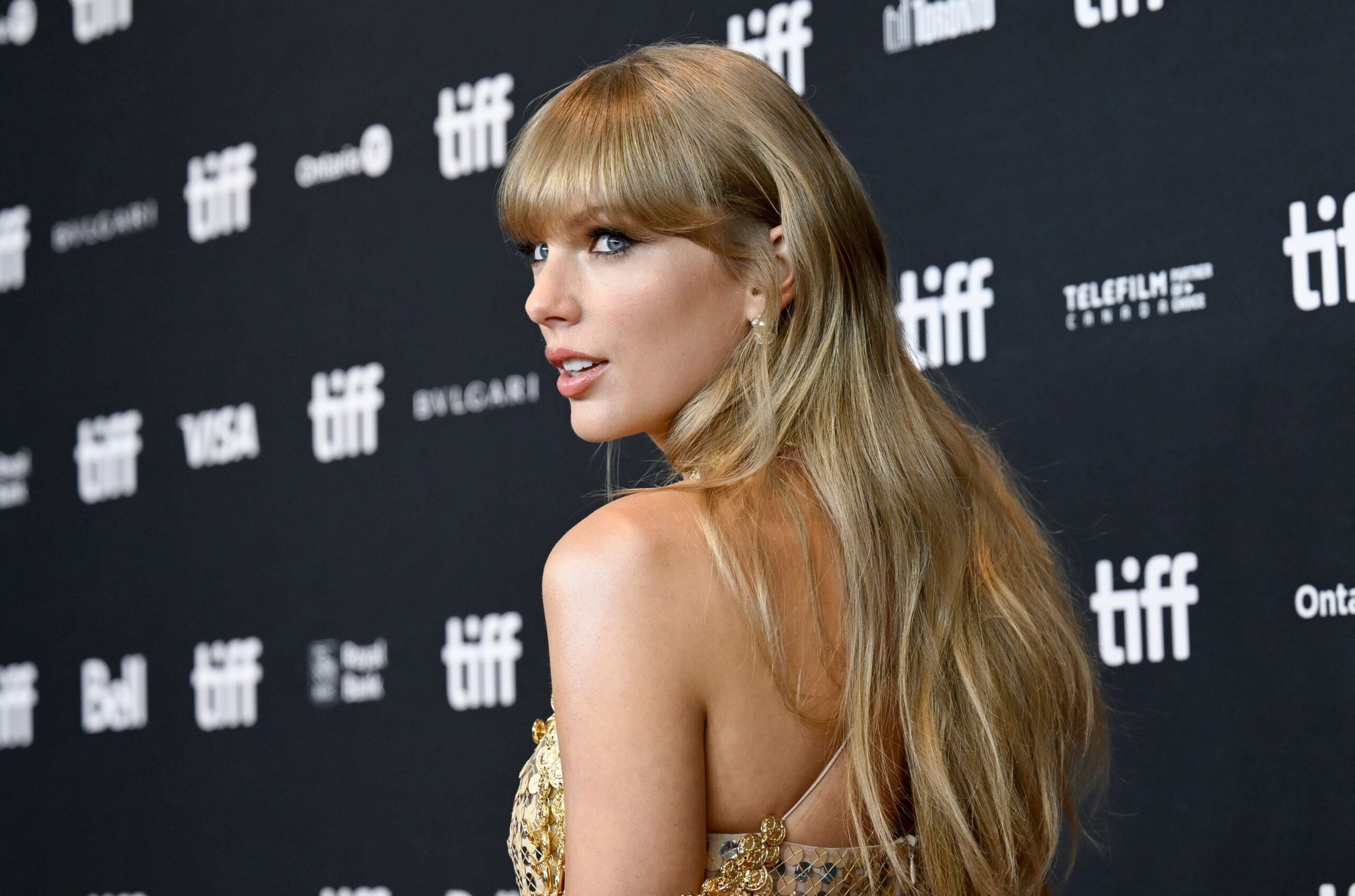
Taylor Swift at the Toronto International Film Festival
Photo by Evan Agostini (Shutterstock)
It’s time for us to reevaluate stan culture.
For those who somehow missed the news, Taylor Swift released her surprise eighth album, folklore, last weekend. Featuring contributions from Bon Iver’s Justin Vernon and the National’s Aaron Dessner, it marked a notably stark sonic shift for our reigning pop princess, a noted indie fan in spite of what that one line in “We Are Never Ever Getting Back Together” might’ve suggested.
But even the extremely short notice of folklore‘s release didn’t keep Taylor Swift’s most diehard fans from, well, doing what Swifties do best.
Pitchfork revealed their hotly anticipated review of folklore the following Monday, awarding the album a score of 8.0/10—not high enough to merit a “Best New Music” title, but an impressive feat considering the website’s complicated history with Swift’s music.
Still, the Swifties attacked, doxing the author of the review out of sheer anger that the album didn’t receive a perfect 10. In tweets that have since been removed due to violating Twitter’s guidelines, Swift’s fans shared the reviewer’s personal contact information—phone number included.
Cloaked in ambiguous screen names and Twitter avatars of their blonde hero, Taylor Swift’s fan base has grown into one of the most ruthless and terrifying of its kind. With each review of folklore—whether it be from Pitchfork, the Guardian, or the New York Times—the Swifties viciously barraged the publication’s Twitter replies if the critique was anything less than perfectly gleaming.
Swifties care about numbers. Their goal, it seems, is for folklore to achieve a score of 90 on Metacritic, a reviews aggregator. Judging from their replies, it seems these fans feel a responsibility to go to extreme lengths for the sake of defending their idol.
But Swifties aren’t the only fans to take their celebrity worship too far.
In late 2018, following his rapid engagement and split with Ariana Grande, Pete Davidson shared an Instagram post detailing his mental health issues and history of suicidal thoughts. “I’ve been getting bullied online and in public by people for 9 months,” the comedian wrote, almost certainly referencing Grande’s fans. “I’ve spoken about BPD and being suicidal publicly only in the hopes that it will help bring awareness and help kids like myself who don’t want to be on this earth.” Widespread concern, namely from Grande herself, resulted in the NYPD conducting a wellness check on Davidson.
Though Davidson was found safe, Grande still asked her fans to be “gentler” with him. His post struck a nerve with rapper Cardi B, who felt the need to spread the message to her own fans in the midst of her tumultuous romance with Migos member Offset.
“You just saw how Pete Davidson was talking about how he doesn’t even want to be on this earth because mad people be coming at him every single day,” Cardi said, following her performance at Rolling Loud that was interrupted by Offset. “I wouldn’t want my baby-father to have that feeling because millions of people be bashing him every day.”
As long as we have mega-popular artists like Grande and Cardi, we will have mega-devoted fan bases. But there’s a reason why Cardi’s fans and the Arianators aren’t perceived as being “toxic” as often as, say, fans of Nicki Minaj, BTS, or Swift.
It’s a common ordeal for critics to be berated by fans of Minaj, should they dare say anything even remotely negative about the Queen of Rap; I myself received death threats from countless Minaj fans just earlier this year for a negative song review I wrote. The rapper has come under fire for inciting her fans and sicking them at her naysayers. BTS’ “ARMY” has been dubbed the world’s most powerful fandom, spawning a “toxic” environment that often hides behind anonymous fan accounts.
Swift, on the other hand, hasn’t exactly made any public orders for her army to attack—but for someone with a generally positive demeanor who made a song called “You Need to Calm Down,” Swift’s silence regarding her fans’ actions seems to allow the hostility to swell further.
It’s time for Swift to practice what she preaches and advise her fans to stop attacking critics so mercilessly; other stars in her lane must also follow suit. These fervent fans—or “stans,” as popularized by the Eminem song about an obsessed fan—have come to feel an overwhelming responsibility to go to bat for their idols.
As Swift’s decidedly darker 2017 album Reputation explored, you can’t control how people perceive you if they live outside your world. When fans don’t realize this, “stan” culture becomes a lifestyle. And when one’s lifestyle is threatened, it’s in our human nature to attack.
- From “Rick & Morty” to BTS, Toxic Fanbases We Love to Hate … ›
- From “Rick & Morty” to BTS, Toxic Fanbases We Love to Hate – Popdust ›













